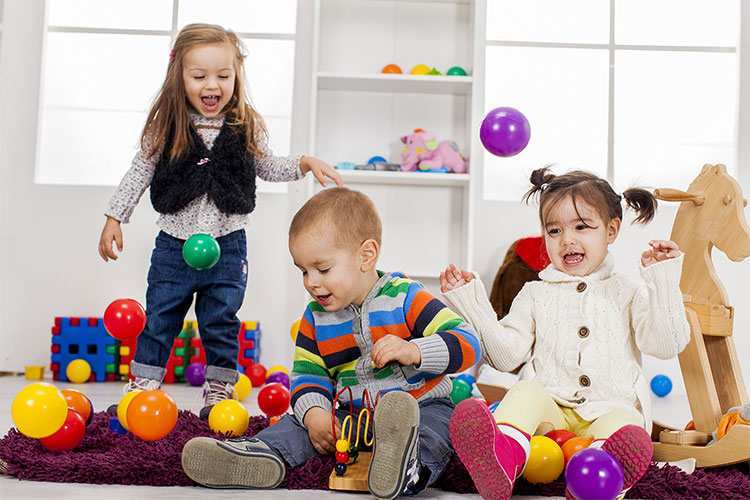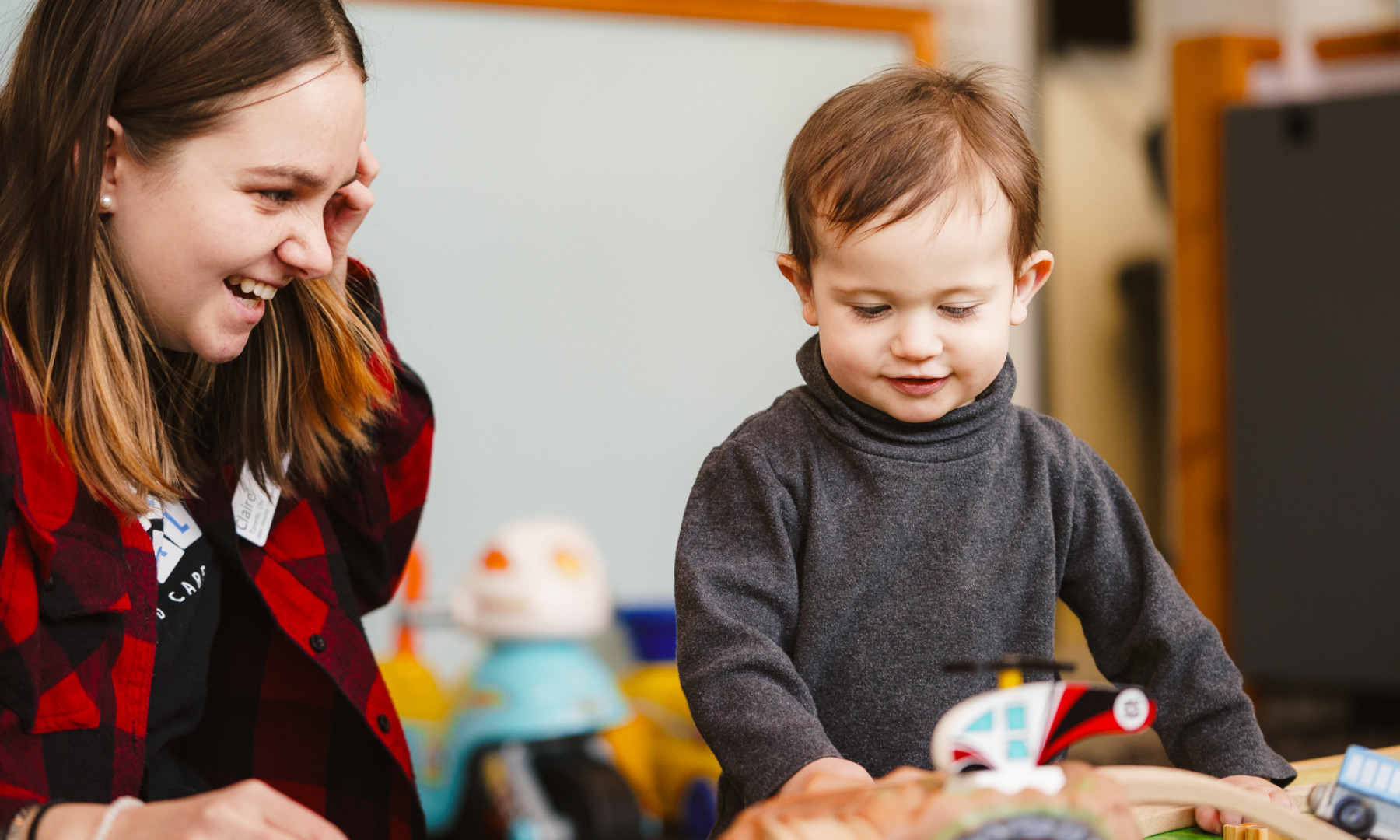The Role of Daycare in Fostering Your Young child's Emotional and Cognitive Skills Through Structured Play and
The role of daycare in supporting a kid's cognitive and psychological advancement is usually underestimated, yet it serves as a pivotal environment for organized play and instructional tasks. Via carefully designed experiences and communications, caretakers facilitate important skills such as psychological recognition and analytic. These fundamental components not just improve a kid's capacity to get in touch with peers yet also foster durability and versatility in different situations. Understanding the subtleties of just how these dynamics unfold raises essential questions concerning the lasting effect of very early day care experiences on personal development and social combination. What might that imply for future development?
Value of Organized Play
Structured play is a vital element of young child development, as it offers a structure where kids can take part in meaningful communications and finding out experiences. This type of play is intentionally made to foster different developing skills, such as cognitive, social, and physical capabilities. By getting involved in structured activities, kids learn to adhere to policies, take turns, and coordinate with peers, all of which are crucial for their interpersonal skills.

Moreover, structured play often integrates academic aspects, such as counting, color acknowledgment, and language development, seamlessly incorporating learning right into fun activities. This strategy not only records toddlers' focus however also enhances necessary ideas in an enjoyable fashion. On the whole, structured play is important in advertising a well balanced development, equipping young children with the foundational abilities necessary for future discovering and social communications.
Emotional Advancement in Childcare
Day care environments play a vital role in promoting psychological development in kids. These settings supply youngsters with possibilities to interact with peers and caregivers, assisting in the growth of essential social-emotional skills. Through normal interactions, young children discover to identify and share their feelings, such as stress, despair, or happiness, which is important for their psychological maturation.

Additionally, the organized atmosphere of daycare permits youngsters to experience a range of emotions in a safe area. When transitioning from home to daycare and create durability as they navigate brand-new partnerships and experiences, they learn to manage feelings of separation anxiousness. On the whole, the emotional advancement promoted in day care not just benefits toddlers during their formative years but likewise prepares for healthy social connections and psychological health throughout their lives.
Cognitive Skills With Activities
With participating in a variety of tasks, young children in childcare setups can significantly enhance their cognitive skills. Structured play and academic tasks are important in advertising cognitive development, as they provide chances for exploration, analytical, and vital thinking. Activities such as puzzles, building blocks, and memory video games test young children to believe creatively and realistically, fostering essential skills like spatial awareness and pattern acknowledgment.
In addition, interactive storytime sessions urge language growth and comprehension. By listening to tales, young children find out to refine information and involve their imaginations, which enhances their narrative skills and vocabulary. In addition, hands-on activities including arts and crafts boost great motor abilities while likewise encouraging self-expression and imagination.
Sensory play, such as sand or water activities, allows kids to explore different textures and materials, promoting inquiry-based learning. These experiences not just improve cognitive abilities however additionally instill a feeling of interest about the globe around them - daycare for infants near me. browse around this web-site Generally, the diverse variety of cognitive activities given in day care environments plays a crucial duty in forming a kid's capability to believe seriously, solve troubles, and engage meaningfully with their environments
Social Links and Interaction
In a caring environment, young children naturally build social connections and involve in interactions that are essential for their social and emotional advancement. Childcare settings supply a distinct chance for youngsters to engage with peers, promoting necessary social abilities such as sharing, collaboration, and dispute resolution. These communications help young children discover to browse their feelings and understand the viewpoints of others, which are crucial elements of psychological knowledge.
Through structured play and group activities, young children are urged to communicate their sensations and thoughts, enhancing their verbal skills and promoting empathy. Engaging with peers additionally presents them to diverse social norms and habits, enhancing their understanding of social characteristics. Additionally, regular communication with various other youngsters assists to develop a feeling of area, providing a support group that is valuable for psychological growth.
As toddlers take part in collaborative tasks, they find out the importance of teamwork, patience, and negotiation. These fundamental social skills are important as they prepare for future relationships, both in instructional setups and beyond. Inevitably, the social links developed in day care play a considerable role fit a young child's capability to interact favorably and efficiently with others throughout their lives.
Role of Caretakers in Growth

Caretakers play a crucial role in promoting toddler development, specifically in the context of the social communications they experience in childcare setups. These specialists give a caring atmosphere where young children can explore their emotions and cognitive abilities via structured play and . By participating in meaningful conversations, caretakers sustain language advancement and enhance social skills.
Moreover, caretakers design suitable behaviors and emotional feedbacks, aiding young children learn compassion and problem resolution. Their visibility likewise produces a complacency, which is necessary for kids to with confidence explore their surroundings and involve with peers.
In enhancement to psychological and social assistance, caretakers contribute in implementing educational curricula that promote cognitive development - infant daycare near me. They introduce age-appropriate tasks that boost inquisitiveness, important thinking, and analytical skills. This organized method makes sure that kids not only appreciate their playtime however also get foundational expertise necessary for future knowing
Inevitably, continue reading this the quality of caretaker interactions dramatically affects a kid's general growth. By promoting a supportive and appealing atmosphere, caretakers aid prepare for healthy and balanced emotional and cognitive growth, equipping kids with essential abilities for their long-lasting journey.
Conclusion
In verdict, day care works as a crucial environment for cultivating cognitive and emotional advancement in kids. Through structured play and academic tasks, youngsters experience significant development in their capability to identify and express emotions, create critical believing skills, and kind essential social connections. The role of caregivers is critical in facilitating these experiences, ensuring that each child gain from a nurturing atmosphere that promotes lifelong psychological wellness and cognitive innovation.
The duty of childcare in supporting a kid's psychological and cognitive advancement is usually taken too lightly, yet it offers as a crucial setting for organized play and instructional tasks. Generally, structured play is instrumental in promoting a well balanced advancement, furnishing young children with the foundational skills necessary for future learning and social interactions.
Daycare environments play a vital function in promoting emotional development in young children. Overall, the emotional growth fostered Visit Website in daycare not just advantages kids during their formative years yet also lays the groundwork for healthy interpersonal connections and psychological wellness throughout their lives.
Through structured play and team activities, kids are motivated to communicate their feelings and ideas, enhancing their spoken abilities and advertising compassion.